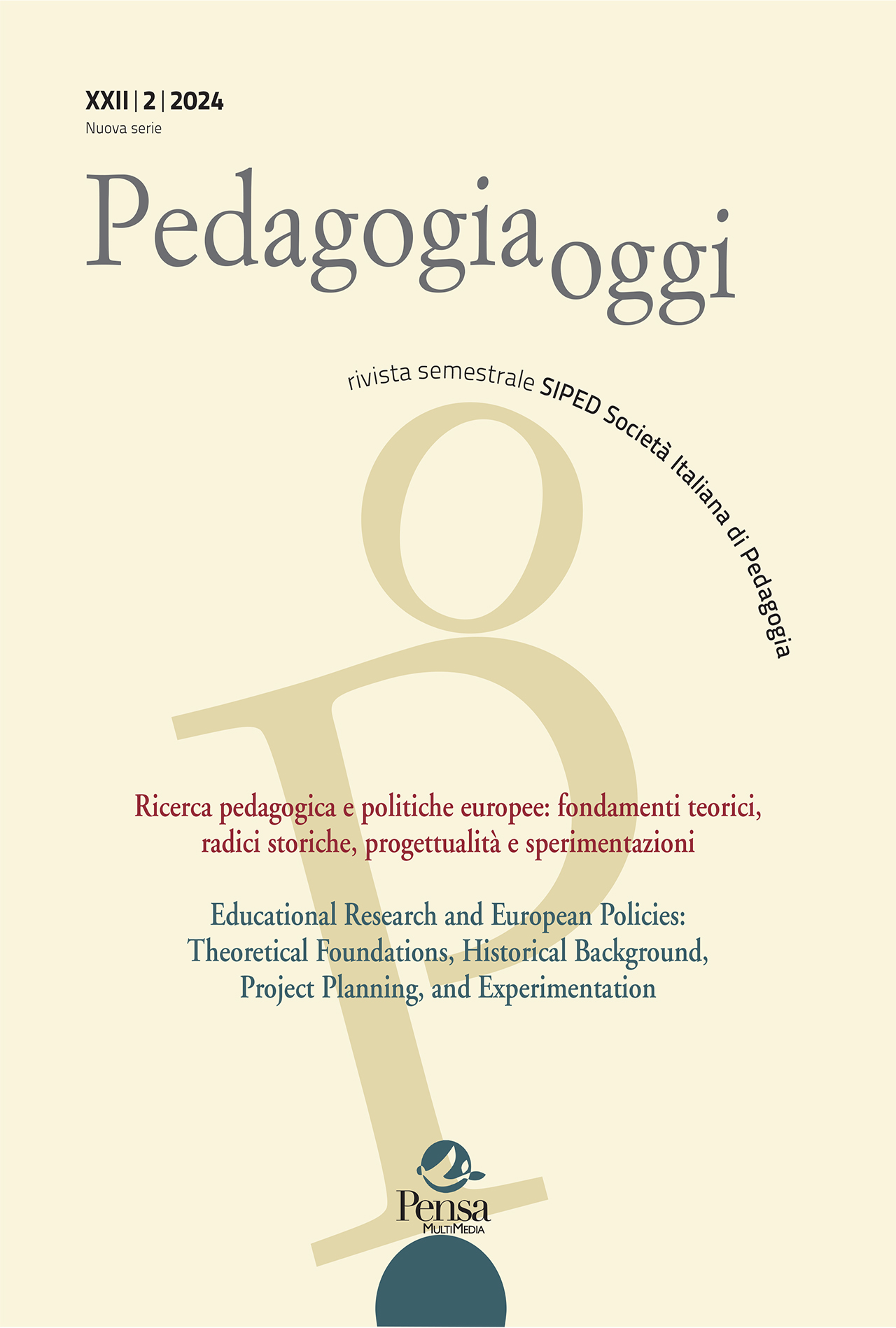Increasing ECEC accessibility for children and families from societally disadvantaged background in context of the integrated 0-6 system reform: preliminary findings from the project “Il buon inizio”
DOI:
https://doi.org/10.7346/PO-022024-02Keywords:
Sistema integrato, Servizi educativi per l’infanzia, famiglie vulnerabili, Il buon inizioAbstract
In many European countries, ECEC is provided within a split system: services catering for children under-3 are labelled as “childcare” – denying their important pedagogical dimensions – while services for 3-to-6-year-olds are called “preschool” – suggesting a narrow focus on school readiness denying their social function (Vandenbroeck et al., 2022). In Italy, the reform on the integrated 0-6 system was enacted to overcome socio-economic, cultural and territorial disparities in access to high quality provision, which were entrenched in the governance of ECEC services within the previously existing split system (Law107/2015, LawDecree65/2017). In line with EU Council Recommendations on High Quality ECEC System (2019) and on the Child Guarantee (2021), increasing the access to high quality provision – especially for societally disadvantaged children and families – has become one of the main priorities driving reform implementation processes with the support of European funding (i.e. EU Social Fund, NRRP).
In such context, several programmes are currently piloted to reach out to vulnerable families and tailor ECEC provision to the needs and resources of local communities. This contribution will describe the participatory action-research initiatives undertaken within the project “Il buon inizio” establishing multi-functional early childhood centres in areas densely populated by low-income and marginalised families.
Downloads
Published
Issue
Section
License
Copyright (c) 2025 Lucia Balduzzi, Arianna Lazzari

This work is licensed under a Creative Commons Attribution 4.0 International License.




